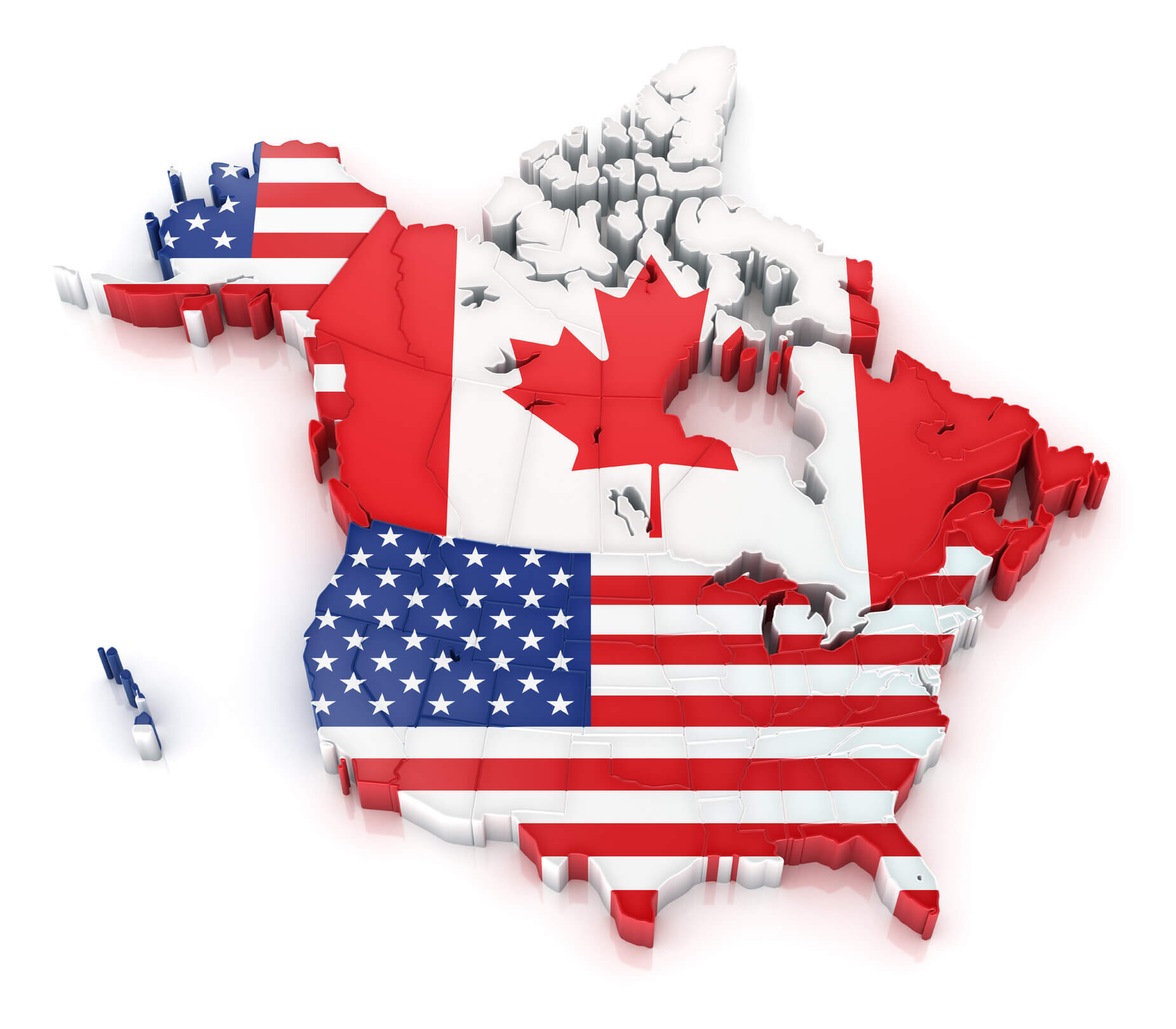
As Canadian cannabis laws begin to relax, and the industry opens up across the United States border, what can we expect to see from Canada’s leading marijuana, CBD, and cannabis-based companies? Are any of them worth a substantial investment? In this article, we look through the top ten Canadian marijuana companies you should keep an eye on.
While a ‘green rush’ of love for cannabis products has swept over most of the world in recent years, it all started in Canada. In 2018, Canada became the first modern industrialised country to legalise cannabis on a broad scale. This birthed an entire industry surrounding the growth, harvest, and distribution of cannabis-derived products like CBD, as well as medical and recreational marijuana. Even before this, they had legalised medical cannabis in 2001.
Comes with 30 day money back guarantee
Shop now
The industry is still in a high-growth stage of development, and many are choosing to dive into the action by investing in Canadian marijuana companies. Few investment opportunities are more exciting than a rapidly-growing industry that is still relatively new to the market, which provides a high chance of sustained success.
While the global marijuana market is expected to grow by 18% annually between 2020 and 2027, today, we are travelling north to examine the top 10 biggest Canadian marijuana companies to help you decide which are worthy of your time and investment. We will discuss:
- Canadian marijuana laws and legalisation, including the standards the industry upholds on a federal level.
- Which Canadian marijuana companies you should keep an eye on in the future, including their respective market caps and other helpful stock statistics, as well as their brief histories and where they stand to make an impact within the broader industry.
- We will also take a brief look into some smaller Canadian cannabis stock options, before:
- We head into weighing up the future potential of the Canadian marijuana industry, particularly regarding future expansion into the United States.
Canadian Marijuana Legalisation
Canada may have been among the first countries in the world to legalise marijuana, but what are the ins and outs of its cannabis legislation? In the first nine and a half months before legalisation (the new laws came into effect in mid-October 2018), there were over 26,000 possession charges filed. This dropped to a staggering 46 in the entire year of 2019.
Indeed, one of the many reasons President Justin Trudeau gave for changing Canadian cannabis laws was to take away the criminal aspect of marijuana ownership- after all, why let criminal organisations and street gangs make all the profit when you could instead build a multi-billion dollar industry, adding billions to the economy?
With the Canadian government investing $46 million over a five-year period in educating the public about cannabis, it’s clear that Trudeau’s government is behind the burgeoning industry and is ready to put their money where their mouth is. With this in mind, before we look into the companies themselves, it’s worth briefly examining the standards for Canadian marijuana companies, as set by the government:
- Cannabis-derived food, drink, and concentrates are allowed to be sold, in addition to fresh or dried plant (though the amount a consumer is allowed to possess at any given time varies between provinces).
- Federal, territorial, and provincial governments work together to oversee the industry’s regulation (inviting some possible complications for legality).
- Packages and labels must include potency & standard serving sizes.
- Companies must uphold good production practices.
- Cannabis is tracked from seed to sale (so that the consumer can be 100% sure their product has never been part of the illegal market, which is still prevalent in many areas).
- Only certain promotional advertisements and marketing tactics may be used to promote marijuana products (in order to avoid early exposure to the substance by minors).

Many cannabis companies may generate significant losses in the short term while they focus on developing new products and expanding their markets via internal growth, acquisitions, and mergers. As a result, it is best to examine their worth via revenue growth rather than net income growth. Any time you invest in a Canadian marijuana company, your stocks should be listed on major exchanges or traded in OTC (over-the-counter) markets. Many Canadian cannabis stocks can also be labelled as penny stocks, being under $5 per share.
Market cap doesn’t always show the quality or competitive advantages of a company, but we’ll take you through all that (as well as a few useful stats along the way) as we explore Canada’s ten biggest marijuana companies.
Market Cap: $9.85 Billion
2020 TTM: +0.91%
Share Price: $25.74
2021 Revenue Growth (as of June): 28.73%
Canopy Growth (trading in the US under CGC) is another Canadian medical marijuana company, and is a force to be reckoned with. They were the first federally regulated, publicly traded, and licensed cannabis grower in North America, and maintain operations in Canada, the US, UK, and Germany. However, Canopy Growth is more than just a Canadian company: it’s among the largest marijuana companies in the world (by market capitalisation, they are worth over $12 billion).
Their vertically integrated business means that they have a hand in the entire process of creating Canadian marijuana products: from production to the distribution and selling of their oil, concentrates, CBD, and capsules. They are expected to continue experiencing excellent prospects as the United States becomes increasingly accepting of the cannabis industry (in a legal sense).
However, it is also worth noting that Canopy Growth’s relatively recent operating losses have been considerable due to large portions of share-based compensation and inventory rebalancing, leading some to speculate on whether they are worth the investments they were earlier in the industry. Regardless, it may be worth keeping an eye on their status, as, in 2021, they acquired Supreme Cannabis and show no signs of being out of the running in recent years.
In fact, they will likely enter the legal THC market in the US, and are also likely to buy Acreage Holdings (a cannabis operator based in the US). This US expansion is expected to continue. Canopy Growth is already operating in 13 states, with a total of 29 dispensaries. Some even expect Canopy Growth is uniquely poised to rival popular American names such as Curaleaf and Trulieve.
Market Cap: $6.78 Billion
2020 TTM: -11.38% (so far making a solid recovery in 2021)
Share Price: $21.43
2021 Revenue Growth (as of June): TBA
This Canada based company isn’t limited to cultivating, processing, and distributing their medical cannabis products- they are also engrossed in associated research within the sector. As we discussed earlier, Tilray and Aphria have merged (as of late 2020)
Tilray is considered the largest marijuana company in the world (by revenue), with operations in 16 countries (giving them global exposure as the cannabis industry expands in the long term). The merger with Aphria solidifies their position among big-league Canadian marijuana stocks, and they are expected to truly turn a profit as soon as 2022.
With investments in Europe and the US expected to outpace Canada in terms of total sales, it’s no surprise that this Canadian marijuana company is expected to continue expanding over time as the world becomes increasingly accepting of cannabis. In addition, in 2019, Tilray acquired Manitoba Harvest (a respectable hemp business with connections to thousands of retailers across Canada and the United States), providing Tilray with unique leverage to sell their products with these retailers post-legalisation.
Market Cap: $4.87 Billion
2020 TTM: +52.28%
Share Price: $15.38
2021 Revenue Growth (as of June): 320.07%
Also operating in the US as APHA, Aphria grows, produces, and markets Canadian medical cannabis products, with a reputation for being one of the lowest-cost producers of cannabis. With a wide-ranging roster including marijuana oils, softgels, cartridges, and oral sprays, it should come as no surprise that Aphria has been outperforming its competitors since 2019. The company is expected to dominate the market via a merger with Tilray Inc, creating the world’s largest cannabis company (by pro forma revenue).
Even while battling early 2020 lows, Aphria shares have recently hit all-time highs (and are up roughly 700% year over year). Moreover, as the marijuana industry continues to grow, Aphria is one of few large cannabis stocks with profits over the last year or so.
Market Cap: $3.36 Billion
2020 TTM: -7.25% (making a recovery in 2021)
Share Price: $9.03
2021 Revenue Growth (as of June): 9.77%
While Cronos Group has been a slow starter in the production sector of the marijuana industry, with a robust cash balance ($1.5 billion) and a market cap of $2.82 billion as of January 2020, they will likely see expansion in the future. The US tobacco titan Altria invested $1.8 billion into the company in 2018, with the likelihood of a continuous partnership that will see Cronos Group breaking into many new markets in the future.
In the fourth quarter of 2020, its top-line soared 133% (driven by the tripling of sales in non-US markets such as Israel and Canada). It is their growth rate that truly sets them apart from competitors. While the company produces its own cannabis products, it also invests in marijuana growers and companies. Their diverse portfolio includes the brands:
- Peace Naturals (a health and wellness company)
- Cove (a cannabis producer based in British Columbia)
- Lord Jones
- Happy Dance
Market Cap: $2.03 Billion
2020 TTM: -38.81% (so far making a recovery in 2021)
Share Price: $10.23
2021 Revenue Growth (as of June): -7.51%
A major Canadian cannabis producer and licensed distributor, Aurora Cannabis (ACB in the US) deals in both medical and consumer cannabis sectors, with a particular focus on CBD products that sets them apart from their competitors.
Like Canopy Growth, they were an early starter when it came to Canada’s publicly-traded cannabis stocks, and have since been doing well in the Canadian medical cannabis sector. Their consumer cannabis division (including vapes, concentrates and edibles) is also far from a failure.

Unlike many other companies on this list, they are without a larger partner- but have been taking steps to move into the US via the acquisition of Reliva (specialising in CBD products, with connections to over 20,000 retail locations). While this move may be helpful in the long run, the company has since struggled to generate consistent growth and has even garnered a sour reputation as a ‘serial share dilutor’.
However, further deals shouldn’t be discounted- as with Canopy Growth, Aurora faces an increase in opportunities as the US legalises marijuana.
Market Cap: $1.993 Billion
2020 Price Change: +404.44%
Share Price: $13.49
2021 Revenue Growth (as of June): TBA
Another dual-action company on the Canadian cannabis scene is TerrAscend, with a portfolio of products for recreational and medical use. Their brands include:
- Arise Bioscience Inc (a manufacturer and distributor specialising in hemp products)
- Ilera Healthcare (a cultivator, processor, and distributor of medical marijuana)
- The Apothecarium (a marijuana dispensary)
Market Cap: $1.89 Billion
2020 TTM: +34.88%
Share Price: $1.14
2021 Revenue Growth (as of June): -16.85%
While investor confidence in Sundial Growers has suffered in the past due to primarily being a wholesale marijuana supplier (a lower-margin pathway within the industry when compared to the adult market). However, their reasonably recent expansion into the adult recreational cannabis market (and away from wholesale) seems to be going well. While the full transition into the adult market will take time to fully be reflected in the company’s stock, it is expected to be an overall success.
Market Cap: $0.97 Billion
2020 TTM: -19.39% (recovering well in 2021)
Share Price: $3.27
2021 Revenue Growth (as of June): -8.1%
Organigram Holdings is another Canadian company specialising in medical marijuana, particularly dry cannabis and oil, as well as cannabis vapes and other accessories. Their stock seems to be more volatile when compared to many others on this list (partly due to being a penny stock), however, the company can still hold its own against more prominent players if executed well enough. One large draw is their reputation for having a ‘no-nonsense’ operating profit, excellent efficiency, and the possibility (if not probability) of above-average margins and recurring profitability in the future. As a result, they certainly have a good chance of being successful and truly competing with other companies on this list in the coming years.
However, despite British American Tobacco taking an almost 20% equity stake in Organigram Holdings, many are choosing to hold off on investments until Organigram Holdings have solidified themselves among more significant Canadian marijuana companies.
Market Cap: $0.85 Billion
2020 TTM: +9.8%
Share Price: $6.93
2021 Revenue Growth (as of June): 16.54%
HEXO started out in the 2013 Canadian medical cannabis market (the first in Quebec), quickly expanding into recreational marijuana. Their brand names include:
- HEXO Cannabis
- Up Cannabis
- Original Stash
- HEXO Medical Cannabis
- Zenabis Global
Market Cap: $323.83 Million
2020 Price Change: +39.13%
Share Price: $1.17
2021 Revenue Growth (as of June): TBA
Through the subsidiary Fire & Flower Inc, Fire & Flower Holdings has a hand in dozens of retail stores throughout Alberta, Ontario, Manitoba, Yukon, and Saskatchewan. They specialise in selling recreational cannabis products. Additionally, their digital platform (Hifyre) enables customers to choose from a wide range of cannabis products.
The Quebec-based company was recently hit with supply concerns, which, in connection with laying off 200 workers (from various departments), have given it a reputation as a cost-cutter. The unfortunate likelihood is that HEXO is far from turning a profit in the near future.
With the acquisition of Zenabis Global in 2021, HEXO became the third-largest licensed company in Canada’s recreational cannabis market. Zenabis Global was already a significant player in Canada’s cannabis industry, selling medical and recreational products under the brand names Namaste, Blazery, and Re-Up. The acquisition brought HEXO additional exposure to Europe’s medical marijuana market unseen by many Canadian marijuana companies (recreational or otherwise).
Smaller Canadian Cannabis Stocks
Canada is expected to be generating $5 billion in annual sales from cannabis-related products by 2024. With the country’s marijuana sales totalling just under $1 billion in 2019, there is still much room to grow- meaning the overall outlook for the market is favourable. Still, there could be some volatile times along the way to success.
However, if you would prefer to invest in the potential of a smaller (but still significant) Canadian cannabis company, why not look into:
- MediPharm Labs
- The Valens Company
- Village Farms International Inc
- Ayr Wellness Inc
- CannTrust Holdings
- Emerald Health Therapeutics
- The Supreme Cannabis Company
The Possibility of Wider Benefits From Your Canadian Cannabis Investment

When you invest in Canadian marijuana stock, you aren’t just investing in cannabis- you’re investing in a healthier future for us all. You aren’t the only one- a vast majority of those south of the border also support the use and legalisation of this remarkable plant.
With an increasing number of states in the US legalising marijuana, federal marijuana legalisation is becoming increasingly likely (if not inevitable). Furthermore, 91% of Americans believe the plant should be legal for one use or another, with 60% supporting both medical and recreational use.
Should cannabis ever be fully decriminalised throughout the United States, many Canadian companies stand to benefit. Not only this, but perhaps there will be a domino effect in legislatures throughout the globe- leading to market highs previously unseen, even in this ever-growing industry.

Anastasiia Myronenko
Anastasiia Myronenko is a Medical Physicist actively practicing in one of the leading cancer centers in Kyiv, Ukraine. She received her master’s degree in Medical Physics at Karazin Kharkiv National University and completed Biological Physics internship at GSI Helmholtz Centre for Heavy Ion Research, Germany. Anastasiia Myronenko specializes in radiation therapy and is a fellow of Ukrainian Association of Medical Physicists.